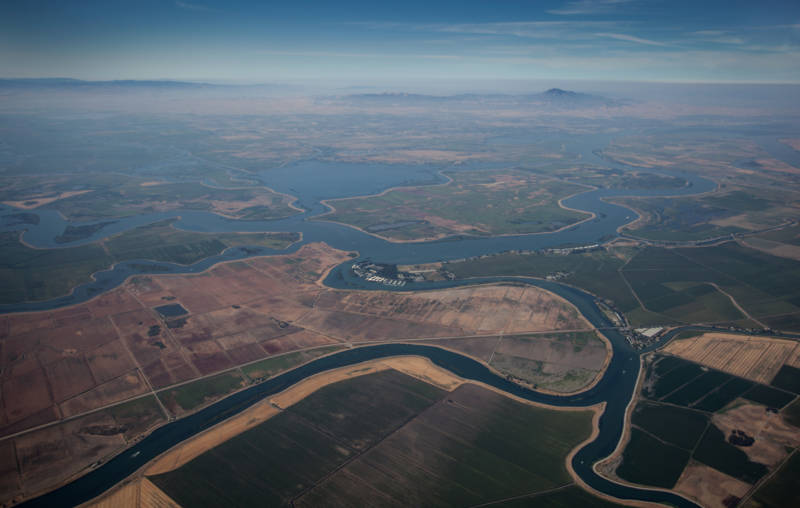California officials don't have to pay property owners to access their land and decide whether to move forward with a $15.7 billion plan to build two giant water tunnels that would supply drinking water for cities and irrigation for farmers, the California Supreme Court ruled unanimously Thursday.
The landowners in the Sacramento-San Joaquin Delta in Central California had demanded payment for thousands of acres the state sought for pre-project testing, which would have added millions of dollars to the cost of the tunnels project.
State officials said being forced to rent the land for testing would have also set a dangerous precedent that would have driven up the costs of other California public works projects and made some of them too expensive.
The Supreme Court ruled 7-0 in the state's favor, giving Gov. Jerry Brown a major victory in his fight to build the tunnels.
State officials insisted the tests would not significantly interfere with or damage the land, and that the state should be required to compensate landowners only for any actual damage or interference.
